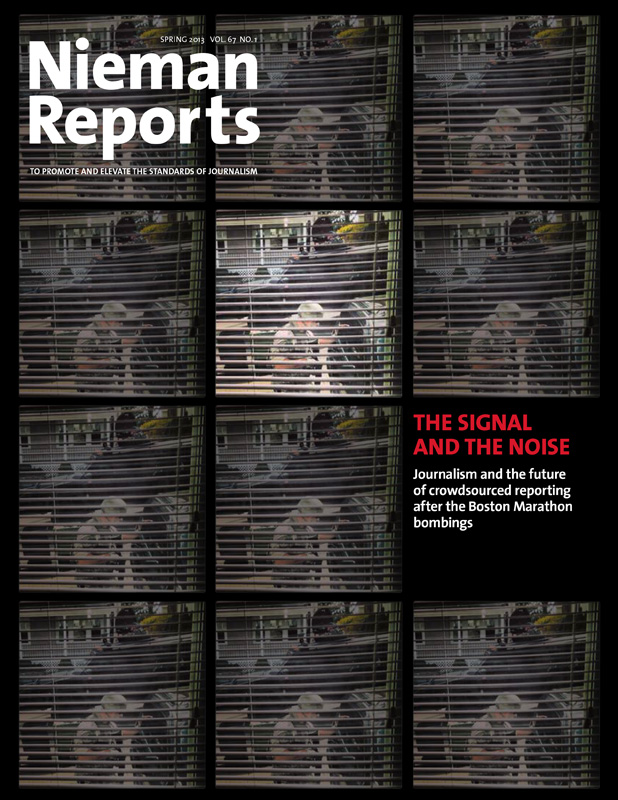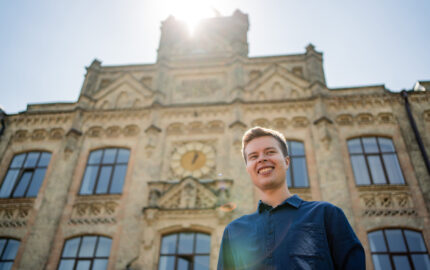
Coming to Harvard was a dream come true—but it was also the hardest thing I’ve ever done. For much of this year my husband and our two young daughters stayed in London, our family life displaced onto Skype. It breaks my heart every day. I love my two girls more than anything in the world. But I also want to be a role model for them—I want to fulfill my professional dream and make them proud.
I come from a line of strong women. My father’s mother studied medicine before women in Germany even had the vote. In medical school they made her sit behind a screen during exams so she wouldn’t distract male students. My own mother trained as an engineer. There were no female bathrooms in her college; she had to go down to the basement where the cleaning ladies had their lockers.
Both were fighters. But both eventually gave up their dreams. My grandmother married a doctor instead of becoming one herself. My mother retrained as a teacher.
But that was the 1970s, right? When I started out in journalism at the beginning of the new millennium I thought gender equality was a reality. I was a journalist at the International Herald Tribune in Paris. I covered presidential elections, banking scandals, and wrote about terrorist attacks from Madrid to Algiers. I was the go-to person in the newsroom.
But then I had a baby and everything changed. My husband and I had always shared everything, from money to dishwashing duties. Now society wouldn’t let us: I was the one taking parental leave and I was going back part time.
Suddenly the big stories no longer came my way. At home I was trying to be the perfect mother and at work I tried to make everyone forget that I was a mother at all. At night the news desk would call and my editor shouted down one ear while my baby shouted down the other.
I felt like I was failing at both, motherhood and journalism. And so I did what we reporters do: I wrote about it. I traveled across Europe on a quest to answer the question: How much does tradition shape policy and how much can policy shape tradition?
I explored the persistent differences between Western and Eastern women in my native Germany and went beneath the veneer of equality in France to find one of the most sexist societies in Western Europe. I came across intriguing experiments with part-time and flexible work in the Netherlands. But one trip shaped my thinking more than any other: Going to Sweden was like catching a glimpse of the future.
In the forests south of the Arctic Circle, far away from trendy Stockholm, I met Michael Karlsson. A soldier turned game warden, Michael owns five guns, three dogs, and a snowmobile. But he took six months off with both of his daughters. He took them hunting.
Nearly nine in 10 Swedish men take at least two months off with their children, many of them more. When a father doesn’t take leave he has to justify himself. Thanks to a highly subsidized use-it-or-lose-it leave, the culture has completely flipped.
This has transformed Swedish society: divorce rates are down, HR departments discriminate less against women of childbearing age, there are even signs that the pay gap is narrowing. But perhaps most intriguingly this is redefining what it means to be a man.
In Sweden, men can have it all: they can have a successful career and be involved fathers.
Here is what I learned: The family is a mirror of society. If you want equality at work you need equality at home. In most of our countries women have entered the world of men, but men have not entered the world of women. As Bengt Westerberg, the former deputy prime minister of Sweden who first reserved a chunk of parental leave for men, once put it to me: “We’ve done half the revolution.” If he’s right, the next stage of women’s liberation may well be men’s liberation.
Katrin Bennhold, a 2013 Nieman Fellow, covers European politics and economics from London for the International Herald Tribune and its parent newspaper, The New York Times. She writes a column on the economics of gender.


